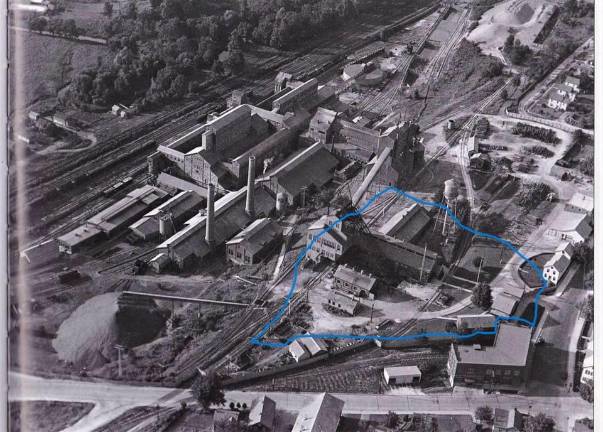
A significant historical site in Sussex County soon may be lost forever.
During the first half of the 20th century, Franklin had one of the world’s largest zinc mines, and it was the most celebrated.
The Franklin Mine was one of the world’s great mines. From April 1910 to September 1954, the mine employed hundreds of workers, including many local residents and an enormous influx of immigrants from some 20 countries around the globe.
From a beginning in the 1840 to a consolidation in the 1890s and a ramp-up in production in the next few years, the Franklin mine provided the ore to strengthen America.
Here are some outstanding accomplishments:
• The first set of standard weights for the U.S. Bureau of Standards used the zinc from Franklin. Zinc oxide from Franklin was used first in the American process. Zinc pigment for the first ready-made paints on the market originated here. The safety record was among the best in the industry and gear, such as helmets and mine rescue respirators, was tested here for better protection.
• The unique mineralogy and the great number of rare minerals that were found only here made Franklin famous to geologists in every nation. The ore body acquired the name “Fluorescent Mineral Capital of the World” and in 2023 the quintessential mineral became Franklinite, the New Jersey state mineral.
• The great number of immigrant miners from around the world coalesced into teams of effective work gangs to make large-scale production a reality. The many diverse families blended into a hardy community of citizens who prospered in the new country. The rough-and-tumble mining district became “the Model Mining Town of the East.”
The remaining buildings of the great Palmer Plant still exist in the middle of town.
Experts say the great heritage of this mining town, as personified in the remaining buildings, easily could become a national historic site.
A visit to a place like the Lowell, Mass., National Historic Site, where the textile mills bloomed along the river and offered a living for many immigrants - just like here - is a perfect example of what the Palmer Plant in Franklin could become.
If you are at all interested in seeing the site preserved, please sign the petition online at truran.com/nj-zinc-co-palmer-plant-historic-site/ or send email to me to show your interest in the Palmer Plant in Franklin being preserved.
Contact Bill Truran, Sussex County’s historian, at billt1425@gmail.com